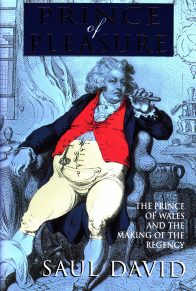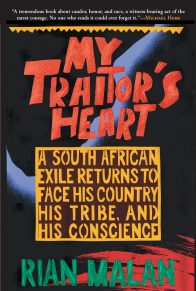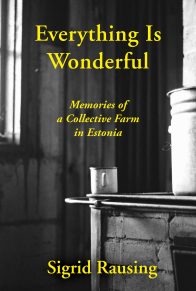We were permitted to move about the work camp till 8 P.M. In summer, when the days grew long, the guards allowed us a limited freedom while dusk gathered slowly and sky and earth joined on the horizon. It felt good to stand with my back to the perimeter fence, looking at the parade grounds in the middle. By glancing up I could see that the sky was still there, as blue and eternal as ever. It was good to look down, too, away from the stares of the guards behind their machine guns in the watchtowers. The prisoners strolled as casually among the barracks as if visiting old neighbors. A lively trade in staples went on behind closed doors. No one knew how all the loaves of bread or sacks of rice and buckwheat were smuggled in, or where anyone obtained the dollars and diamonds to pay for them. Sometimes a fight broke out; sometimes, a friendship. It was just like the real life beyond the barbed wire–except that no one thought of tomorrow.
We lived by the minute, the secret of our modest happiness being the ability to plod like cattle around our pen, oblivious of the slaughterhouse.
The camp was located in the upper town of Starachowice, in the Kielce district of Poland. The lower town, founded by Cistercian monks, had been inhabited for centuries by Jews. Its main landmarks were a ramshackle synagogue, a marketplace paved with cobblestones, a sleepy old well in the middle of the square and the dilapidated stores surrounding it, and the more spacious houses of the well-to-do in the nearby side streets. Years afterward, in an old-age home in Tel Aviv, I met a woman who wanted to know if the alley cats still basked in the sun by the well in Starachowice. She had the naive faith that time can be stopped, frozen, and thawed out again at will.
The camp stood on top of a hill, not far from a working-class neighborhood lived in largely by men who worked in a nearby iron mine. Other, similar camps were scattered throughout the vicinity, their prisoners a mixture of Poles and Jews. Designed to keep the wheels of the Nazi arms industry turning, each was a patch of life and death in a crazy quilt that only the historians of the future, perhaps, will know how to decipher. Ostensibly, these were not death camps with their cloying smell of the crematorium. No selections–Left! Right! You will live; you to a mass grave!–were held in them. You were even allowed a natural death. Despite the brutal work, the punishing discipline, and the cruelty of the Latvian and Estonian guards, our daily nourishment was a food called illusion. We played at make-believe, the belief that it wouldn’t happen to us.
Was I blind? Impervious to the truth? Looking back today, I can see that being able to repress an apocalyptic reality was a prerequisite for survival. Like everyone else, I had to struggle to forget all that had happened to me from the beginning of the war. Every painful experience that might have sapped my will to live became a blank spot in my memory. The one thing I couldn’t banish was my dying father’s face. It accompanied me everywhere like an inner weight, an inner barb.
It was still light out when I returned from the steelworks. At fifteen, I was the youngest of the workers in the Siemens-Martin plant, whose blast ovens were as obsolescent as the rest of it. Built at the turn of the century by a Jewish magnate named Solomon Frankel who believed in the future of the industrial revolution, its furnaces were idled in the 1930s when it was deemed unprofitable to invest in their modernization. But the Nazi invaders of Poland breathed new life into the cold chimneys. Paid workers and forced laborers scraped the rust from the cars of the internal rail system, removed the warts of petrified concrete from its tracks, and drove out the rats that had taken over the empty work space. New lathes were delivered from Germany. Now part of the Hermann G”ring Werke conglomerate, the plant produced badly needed steel from ore and old scrap metal and cast it into bomb casings and howitzer barrels. The ovens worked around the clock. It was reassuring to know that as long as they kept operating, we had an exemption from death in our pockets.
My father lost his exemption on the day he fell ill. For months he had pushed the cars carrying the sand-tempered steel molds from the foundry to the quality control room. Each weighing half a ton, they screeched on every curve and constantly threatened to jump the rails. Whenever they did, the German supervisors beat the prisoners with iron bars until the cars were back on their narrow-gauge tracks. Even those Germans who were not born sadists became them. They were in a panic of productivity, as if the slightest delay might decide the war against them. A defeat, they knew, meant the end of the Nazi dream of a Volkswagen for every pure Aryan.
I could see my father’s strength giving out. He slipped and fell even without being struck. ‘stop smoking,” I scolded. I knew he was secretly exchanging his daily bread ration for roaches of cigarettes and shreds of low-grade tobacco. If he didn’t want the bread, why not give it to me? I couldn’t bear having to listen to his smiling apologies that he needed the nicotine to live. I was less ashamed of his addiction, or even of wanting the bread myself, than of his need to justify himself. Today I would say that this was the last straw of his paternal authority. Morally, I was on my own long before he breathed his last. Without knowing how or when it happened, I had stopped looking up to him. My only god was the god of survival.
By the time I realized my father was sick, it was too late.
Too late? An absurd thought. As if there was anything I could have done had I known earlier. There was no possible way I could have helped him. Would acknowledging this have made it worse? I don’t know. A psychologist would have said I had strong defense mechanisms. Since the start of the war I had wrapped myself in a thick layer of callousness. It was suicidal not to detach yourself from the human suffering around you. The path to freedom from self-destructive qualms ran over the corpses of those nobler than you.
The typhoid fever epidemic that killed my father was as devastating as the plague in medieval Europe. In anti-Semitic posters I had seen in the streets of Poland before my internment, Jews were portrayed as a germ-infested people. Now the Nazi propaganda proved right.
I can’t say when my father was infected. As long as he was able to stay on his feet, he hid it from me. Perhaps he wanted to believe that he was only under the weather and could cheat his fate by denying it.
One morning his legs buckled at the daily roll call. I tried supporting him. The prisoner on the other side of him paid no attention. No one was prepared to waste energy on such things. It was best to steer clear of others’ misfortunes.
My father doubled over. His hand slipped from my proffered shoulder. There was no point in pretending any longer. He fell as soundlessly as a sack of absorbent cotton. Although my first instinct was to help him to his feet, I straightened up and stared at the German officer on duty. I was experienced enough to know better than to involve myself with a hopeless case. Bad luck was contagious too.
The kapo stopped counting heads. The officer striding alongside him stepped back and barked, “This is all we need! Get him to the infirmary!”
Two prisoners whose job it was grabbed my father’s limp arms and dragged him off. Was he conscious? Did he know what was happening? I never asked. His legs dragged along the sandy ground, the trail behind them progressively fainter. I didn’t want to look. Perhaps I realized unconsciously that the sight would always haunt me. But as though hypnotized, I kept my eyes on the receding pair of shoes that my father was attached to. The kapo waited for him to disappear behind a barracks and divided us into work teams. Men collapsed like that every day. It was no big deal. Five minutes later I was marching in line as usual along the dirt path that led down the hill to the steelworks.
One of the barracks had a sign that said INFIRMARY. A wooden shack with a tin roof, it was otherwise no different from the others. No doctor, Jewish or Christian, had ever set foot in it. The job of the prisoners who worked there consisted of removing the corpses to an open space in the back. Both the dead and the living were tallied at roll call. Not until the figures matched did the SS officer permit the dead bodies to be trucked away to a mass grave on the outskirts of town. I never asked where it was. I didn’t want to know.
I visited my father every day after work. The shift ended at 6 P.M. Evening roll call took another hour. It was a great effort just to climb the hill after a day’s work, passing through the gate under the probing eyes of the sentries. Sometimes we were searched for smuggled food. Anyone caught with it was shot.
After roll call we were free. All I wanted was to lie down in my bunk and let the leaden fatigue run out of my legs. Had I given into this desire, though, I could never have forced myself to rise again and go to the infirmary. Stronger men than myself were wiped out by the end of the day. The Siemens-Martin blast ovens had a temperature of 1,600 degrees centigrade and poisonous vapors that assailed us each time their doors were opened to expel their molten contents. Years later, while reading Jean-Paul Sartre’s play No Exit, in which a character remarks that “hell is other people,” I was struck by the profundity of the remark. But such a hell was nothing compared to our daily immolation in the steelworks of Starachowice. I still felt scorched by it as I approached the infirmary.
The infirmary door was kept closed. For a moment I put off turning its handle. Beyond it, where life met death, there was no more room for lies.
It took a moment to get used to the darkness. The shutters had been nailed tight to keep even a ray of sunlight from penetrating. By the dim light of the bulb that hung from a rafter, the sick men’s faces looked like those of wax dolls. A few still had the strength to pick the lice from their hair. Most lay without moving. Death crawled slowly forward here, out of sight, beneath a cover of darkness that hid the final parting from the world.
My father’s cot was the last in its row. I passed the other patients without giving them a second’s thought. I had no sense of sharing a common fate with them. While they were already waiting in line for the next world, I was still in this one. A sour stench of urine and disinfectant filled the air. Someone stuck out a hand, his dry throat wheezing incomprehensibly. Perhaps he was thirsty and wanted water. I pretended to see and hear nothing. Although I was not afraid of physically catching anything, I was terrified of the slightest connection with these people who had the power to drag me down into their lost, dark world.
“Father, it’s me,” I whispered.
There was no reply. His silence did not fool me. The slight tremor of his fever-chapped lips told me he had heard. The awkward angle of his head on the straw mattress, together with his bulging Adam’s apple, sagging mouth, and bony hands that opened and clenched, seemed to be sending me some signal I could not decode.
I asked, “Are you thirsty, Father?”
No answer. Nothing.
“Father, are you with me?”
I bent down to him, not to listen for a heartbeat but to gently crush the lice that had taken up residence between his eyelashes. Most of the sick men lay silently, some in grotesque positions as if embalmed halfway through an epileptic fit. The lice alone stirred. I wondered what would happen to them when the body that nourished them grew cold. Would they die too, or would they migrate to the next cot and begin life all over? Carefully holding them between my fingers, I looked at them before crushing them with a thumbnail. They popped with the sound of a small cap pistol.
It took a while to do my father’s lashes. I ran a finger over his brows.
“Open your eyes, Father,” I urged.
Did he know me? I badly wanted him to. But to know what? That I had honored him to the last? That I had stayed by him even though abandoning those you loved was taken for granted in a place like this? Damn all that empty moralizing! Couldn’t I see that his stupor had passed beyond comprehension or suffering, that his meaningless existence was sputtering like a candle flame that no longer gave light? One touch and it would go out. Deep down I knew I wasn’t even seeking his recognition. That was just an excuse. Beneath his louse-ridden straw mattress was hidden half a loaf of bread. He hadn’t eaten that day. I was hungry.
“Father?” I whispered. “Father, is there . . . ?”
I started to ask if he needed anything, then realized the absurdity of it. My voice was so low I could hardly hear it. Was I trying to keep him from hearing too? What would I do if he asked me to put him out of his misery?
He wiggled his fingers. It was a sign–but of what? My hand froze on its way to the bread. I sat on the edge of the cot, waiting for him to die so I could take it with a clear conscience.
For a week now I had watched the Angel of Death with his bag of tricks. I had seen him slowly, cunningly, reach out to take men’s lives. The son of a bitch! First he drained the color from their cheeks. Then he soaked their brows with cold sweat, flooded their bodies with exhaustion, set them trembling with fever, paralyzed their brains. A master craftsman.
I was a veteran. I had seen sudden death at work many times. I had seen Wilhelm Kunde of the SS Special Units smash my mother’s skull with a pistol butt; it took forty years to bring him to justice in West Germany. I had seen people shot like Kewpie dolls, kapos murder prisoners with clubs and pitchforks, desperate men throw themselves on high-tension wires. Sudden death was the checkerboard on which we inhabited a few temporary squares. Stunned by it at first, you soon came to regard it as routine. Slow death was a hundred times more frightening. It was death at its most intimate. My father’s death went on and on. There was no way to overlook it.
And while it lingered, all I could think of was that half loaf of bread. I was afraid it might crumble before he stopped breathing. That it would be eaten by the rats or discovered by the orderly, who was now telling me to leave. The clock over the door said a quarter to eight. There were fifteen minutes until the curfew. I laid a hand on my father’s shoulder. “I’ll be back tomorrow,” I promised. He didn’t hear me. Not that it mattered. It was just to make myself feel better.
The orderly slammed the door behind me. The last prisoners were hurrying back to their barracks. The guards were taking out the watchdogs from their kennel by the front gate. We heard their short, staccato yelps every night, the barking of sated beasts who would gladly kill for the pleasure of it.
The next evening the orderly, who had been drowsing on the chair by the infirmary door, told me my father had “given up his soul.”
“Who are you kidding?” I said. “There’s no such thing and no one to give it to.”
He shrugged, not in the mood for a philosophical conversation. “Go on, beat it,” he told me. But I went to have a look. On the last cot in the last row lay a new typhoid patient waiting for another death. I felt furious. I had lost both my father and the bread. The last umbilical cord to my childhood snapped right then. From now on I was entirely on my own.













